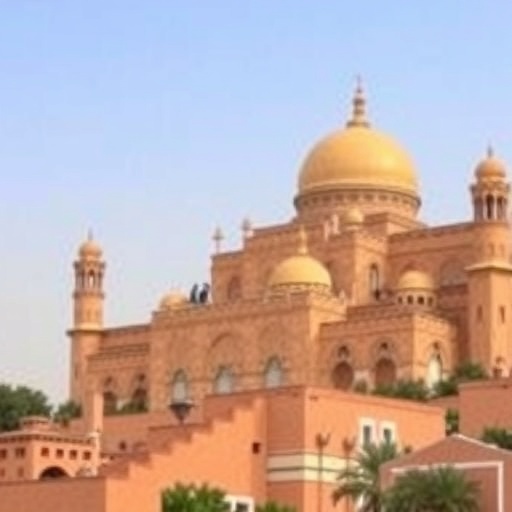In recent years, the world has witnessed a growing awareness of gender equity and the importance of understanding male attitudes towards gender roles. In light of this, researchers have sought to develop tools that facilitate this understanding across different cultures. A pivotal study has taken place in Morocco, where researchers adapted the Gender Equitable Men (GEM) scale into a Moroccan Arabic version (MA-GEM). This important cross-cultural adaptation and validation process highlights the significance of localized tools in measuring gender attitudes effectively.
The GEM scale, originally developed to assess men’s attitudes towards gender roles, has proven to be an invaluable resource in various cultural contexts. However, the need for adaptations emerges when researchers aim to use such scales in diverse linguistic and cultural settings. The Moroccan Arabic version of the GEM scale serves as an exemplary case of this adaptation process, revealing how contextual nuances shape the construction of gender-related assessments.
The researchers behind this groundbreaking study, including Ouahid, Mansoury, and Khachay, embarked on a comprehensive journey to ensure the translations and cultural relevance of the GEM scale were suitable for Moroccan society. They meticulously followed methodological guidelines to ensure rigor and validity, making certain that the MA-GEM would resonate with local beliefs and societal norms. By engaging local experts and stakeholders, they could navigate the intricacies of language and culture that influence gender perceptions.
An essential part of the adaptation process involved a thorough examination of the original GEM items. Each item was assessed for its applicability in the Moroccan context, with local expressions translated carefully to maintain their intended meanings. This rigorous translation process ensured that the items would not only be linguistically sound but also culturally appropriate, reflecting the unique challenges and realities faced by men in Morocco.
Furthermore, the validation of the MA-GEM required extensive empirical testing. The researchers conducted a series of surveys with Moroccan men from various backgrounds, collecting data on their responses to the adapted scale. This quantitative approach allowed for a robust analysis of male attitudes, providing valuable insights into how gender roles are perceived within Moroccan society. Statistical analyses were employed to ascertain the reliability and validity of the MA-GEM, further cementing its utility as a research instrument.
In addition to the psychometric properties of the adapted scale, the researchers explored the implications of their findings. The MA-GEM not only serves as a reflection of men’s attitudes but also acts as a diagnostic tool for gender-related interventions. By identifying prevailing attitudes toward gender equity, policymakers and community leaders can tailor their programs to challenge harmful stereotypes and promote healthier, more equitable relationships between genders.
The researchers emphasized the importance of understanding the broader context in which the MA-GEM will be utilized. The sociocultural landscape of Morocco is characterized by dynamic shifts in gender roles, influenced by factors such as education, urbanization, and globalization. Therefore, the MA-GEM’s findings offer important implications for transformative initiatives that seek to empower men in reconsidering their roles in promoting gender equity.
Moreover, the implications of this research extend beyond the Moroccan context. The methodology employed in adapting the GEM scale can serve as a blueprint for other researchers aiming to develop culturally sensitive instruments in diverse settings. The study reaffirms the critical role of cultural context in research related to gender, illustrating how localized perspectives enhance the relevance of psychological measures.
While the MA-GEM represents a significant step in understanding gender attitudes, it also opens up avenues for future research. Scholars can explore how the findings from the MA-GEM correlate with broader societal trends and shifts in gender norms. Furthermore, comparative studies between different cultural adaptations of the GEM scale can illuminate the variations and commonalities in male attitudes towards gender equity across regions.
As the research community continues to delve into the complexities of gender attitudes, the MA-GEM stands as a testament to the power of culturally adapted measurement tools. It emphasizes the necessity of incorporating local voices and experiences into the discourse on gender equality, particularly in regions where traditional norms may restrict discussions around these topics.
In summary, the cross-cultural adaptation and validation of the Moroccan Arabic version of the GEM scale marks a significant contribution to the field of gender studies. By prioritizing cultural relevance and empirical rigor, researchers have equipped themselves with a vital tool to explore and challenge prevailing gender attitudes in Morocco. The ramifications of this study extend far beyond its immediate findings, fostering an environment where discussions about gender equity can thrive.
As the discourse surrounding gender roles continues to evolve, the MA-GEM exemplifies how localized research can enhance our understanding of complex social issues, encouraging men to engage critically with their roles in promoting equality. Such initiatives reflect a promising step forward in achieving a more just and equitable society.
Subject of Research: Cross-cultural adaptation and validation of the Moroccan Arabic version of the Gender Equitable Men (GEM) scale.
Article Title: Correction: Cross-cultural adaptation and validation of the Moroccan Arabic version of the gender equitable men (GEM) scale (MA-GEM).
Article References:
Ouahid, H., Mansoury, O., Khachay, F.e. et al. Correction: Cross-cultural adaptation and validation of the Moroccan Arabic version of the gender equitable men (GEM) scale (MA-GEM). Discov Psychol 5, 151 (2025). https://doi.org/10.1007/s44202-025-00497-3.
Image Credits: AI Generated.
DOI:
Keywords: Gender equity, GEM scale, cultural adaptation, Morocco, gender roles, male attitudes.




